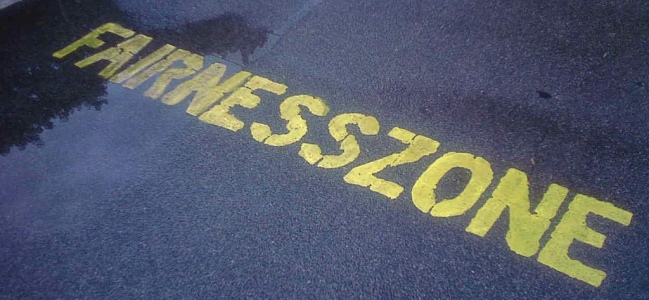Schools as resources for fairness. [Future of Education]
This post is another in a (probably fairly lengthy) series as a result of me reading Keri Facer’s excellent Learning Futures: Education, Technology and Social Change. It follows my previous post: On the paucity of our collective imagination.
We need to start thinking now about how schools can act as resources for fairness if children bring highly diverse digital, social and pharmacological resources into the classroom. We need to start thinking now about how schools can equip students for democracy when technologies of surveillance are expanding and new networked public spaces are emerging. And we need to start thinking now about how schools can act as resources for building sustainable economic futures when networked globalization promises increased polarization, radical inequality and environmental degradation. (Keri Facer, Learning Futures)
One of the main objections I have to Free Schools is that they allow parents to extract themselves from the conversation about schooling. And they allow this (usually for the benefit of the upper middle-class) at the expense of taxpayers. I’m opposed to (most kinds of) independent schooling as well, but at least in this instance parents have to put their money where their mouth is.
For better or worse, whole lives are defined by experiences between the ages of 4 and 16. The experience of schooling defines most people’s educational experiences – and therefore what goes on within schools cannot be underestimated.
Before reading Keri Facer’s book, I was verging towards the Deschooling movement. I now see how getting rid of schools would be a tragic conclusion to the rampant individualism that defines our age. And it would lead to a more unjust society, not a more egalitarian one:
I want to argue that the potential for socio-technical changes to massively amplify social and economic inequalities in the coming decades is significant. This means that, more than ever, we will need schools that are physical, locally accountable organizations, committed to building viable and sustainable futures for everyone in their communities. (Keri Facer, Learning Futures)
The UK has a wider gap between rich and poor than it did 40 years ago. There are huge gender pay gaps and people living in poverty. In 2011. That’s unacceptable. And it’s no good throwing our hands up in the air at our current education system’s seeming inability to close that gap. Instead, we need to strengthen and re-commit ourselves to schools as places where people abandon their ghettos – be those class-based, religious, or otherwise.
As I mentioned in a reply to a comment on my previous post, we can’t be defined solely in opposition to hegemonic power. We need to pre-empt important questions. One of these, for example, is the inevitability within the next 20 years of so-called ‘smart drugs’ which will allow the enhancement (either temporary or longer-term) of human cognitive abilities. Given high-stakes testing regimes it’s inevitable that those who have the means to provide these to their children will do so in order to gain economic advantages.
We cannot wait for problems to arise and then define ourselves by opposition to them. We need to have pre-emptive conversations. We need to come together.
We need schools.
Image CC BY PatrickSeabird


Absolutely, the same debate we need inside and outside schools. I’ll have to look up Keri Facer, although I have a large books-to-read backlog at moment. Damn those blogs making me read more books. Maybe I’ll just keep reading your blogs for a while…
Indeed, Keri Facer’s book is a great read. I love the idea of ‘locally accountable organizations’ and I believe that some questions need to be explored to help this happen:
How can communities regain, rebuild and realise a local attitude with a focus on matters of importance to society when, at the same time, we now extend locality to global presence and information, and work beyond ‘local’ in physical terms?
In short, can we be knowingly global, yet urgently and lovingly local on a physical and personal level?